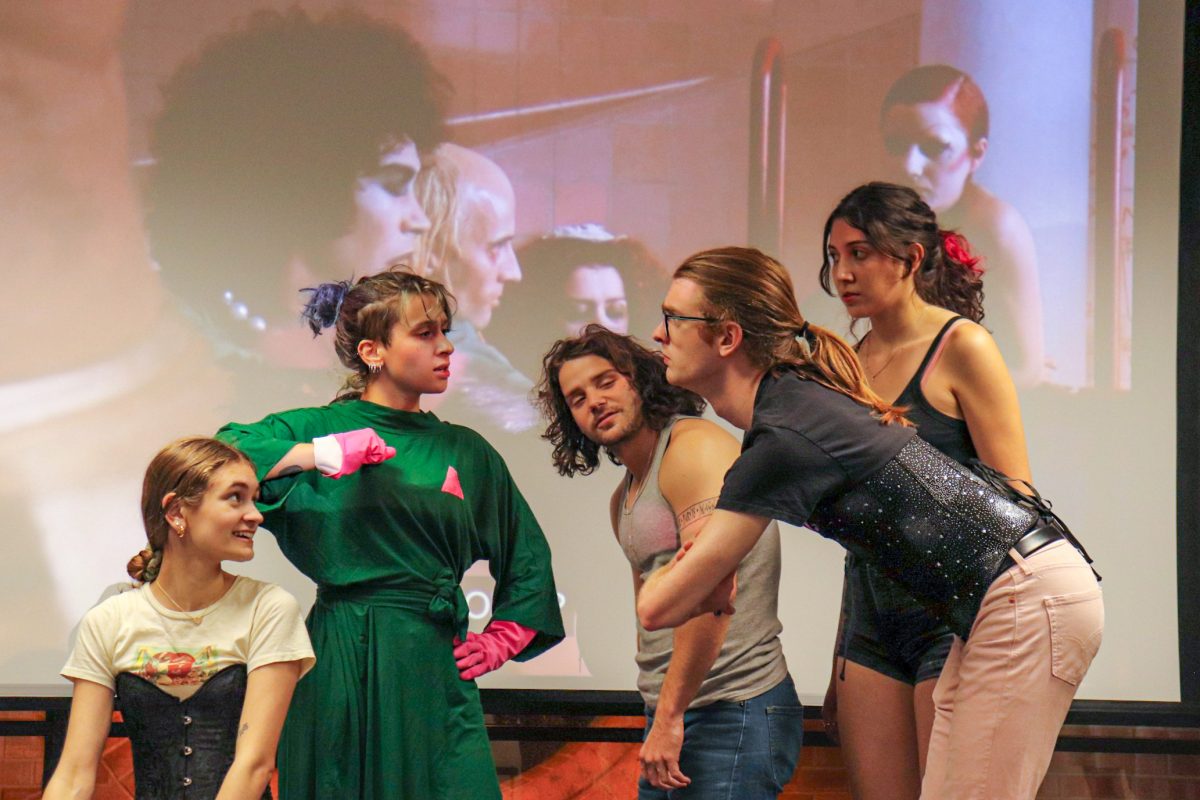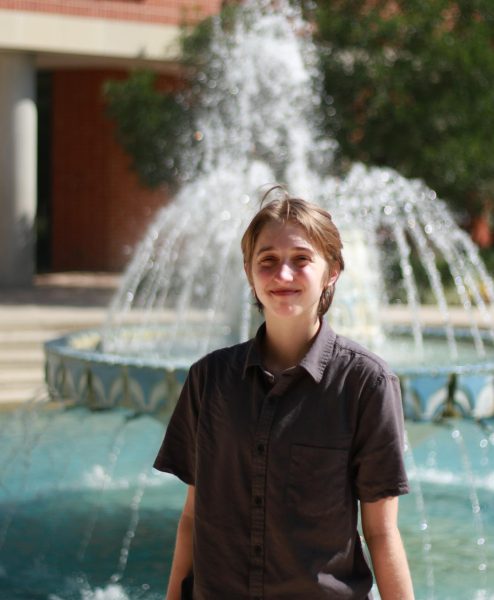Trinity University Players (TUPS) joins thousands of casts nationwide in the tradition of reenacting the film “The Rocky Horror Picture Show” this Friday and Saturday. Made in 1975, “Rocky Horror” is a cult classic, but it also contains problematic content, namely outdated language and depictions of unclear sexual consent. This year, Trinity’s production has taken creative and practical steps to acknowledge the problematic elements without endorsing them, citing the safety and comfort of the actors and audience members as its top priority.
Shadow casting is a “Rocky Horror” tradition, involving a group of actors performing live alongside a screening of the film, during which the audience participates by interjecting predetermined words or phrases referred to as “callouts.”
Kaitlyn Balyeat, senior anthropology and mediterranean studies double major, is one of three directors of this year’s “Rocky Horror” production. Balyeat described the interactive environment of Trinity’s “Rocky Horror” performances.
“There’s a draw from people off-campus, and they come back and they learn the callouts that are specific to campus, then they participate. It really creates this atmosphere of inclusion of the audience and makes it a really fun show to put on,” Balyeat said.
The directors and shadow cast members prioritized preserving a fun and inclusive environment. This year, they made sure to tackle the show’s controversial material with care, namely the infamous red room/blue room scene.
In this scene, the character Frankenfurter leads Brad and Janet to believe he’s somebody else so that he can engage in sexual activity with them. Lucius Brown, junior psychology major, plays Brad in this year’s production, and explained the importance of tackling this scene with care.
“Rocky is inherently a very sexual show, and it’s not really shy about it,” Brown said. “But it was also made in the seventies, so it’s got a lot of uncomfortable bits. For example, there’s an entire iconic scene called the red room/blue room scene, which is literally just showing coercive non-consensual sex.”
To learn how to best deal with this problematic scene, this year’s directors attended an intimacy workshop. Balyeat said the training helped them decide how to change the scene’s portrayal, which in the past has used curtains and shadows to create the illusion that actors who weren’t touching were actually on top of each other.
“Though we never historically had actors interacting [during the red room/blue room scene], based on the advice we got from the intimacy coordination, we really wanted to take a step back from that and not involve the actors so directly acting out that scene, as it was questionable,” Balyeat said.
Instead, this year’s depiction of the red room/blue room scene will involve teddy bears. Andrew Phillips, junior theatre and earth systems science double-major and one of this year’s “Rocky Horror” directors, says this change contributes to the production’s overall tone.
“We have decided to focus on the ‘campiness’ of Rocky this year,” Phillips wrote in an email. “In all honesty, (even after the directors and stage manager went through professional intimacy training) we were still going in that artistic direction of campy and funny — which some scenes do not align with in their traditional blocking and subject matter.”
Even with the changes added this year, though, Trinity’s production of “Rocky Horror” remains subversive and exhilarating. Balyeat said this tone is important to maintain.
“‘Rocky Horror’ is a cult classic and really popular in the queer community, which makes it really impactful for me personally to put it on,” Balyeat said.
Brown also affirms that the changes in this year’s production do not dull the queer and sexual themes present in the original film. Comparing their experience this year with that of last year, they said they are ultimately happy about them.
“I definitely had concerns when I initially heard that a bunch of changes would be made, that we would be removing integral queer elements of it,” Brown said. “But now that we’re getting into the final week of production and the show is so close, it’s very clear that this is still a queer show [and] a sexual show.”
The shadow cast of “Rocky Horror” will perform this Friday and Saturday, and Balyeat is excited for people to see this performance.
“The tradition is really important to the community because, one, it’s a big show that we get to put on, which means a lot of people get to be involved; two, it has a huge audience draw, so we get to share theatre with so many people,” Balyeat said.








